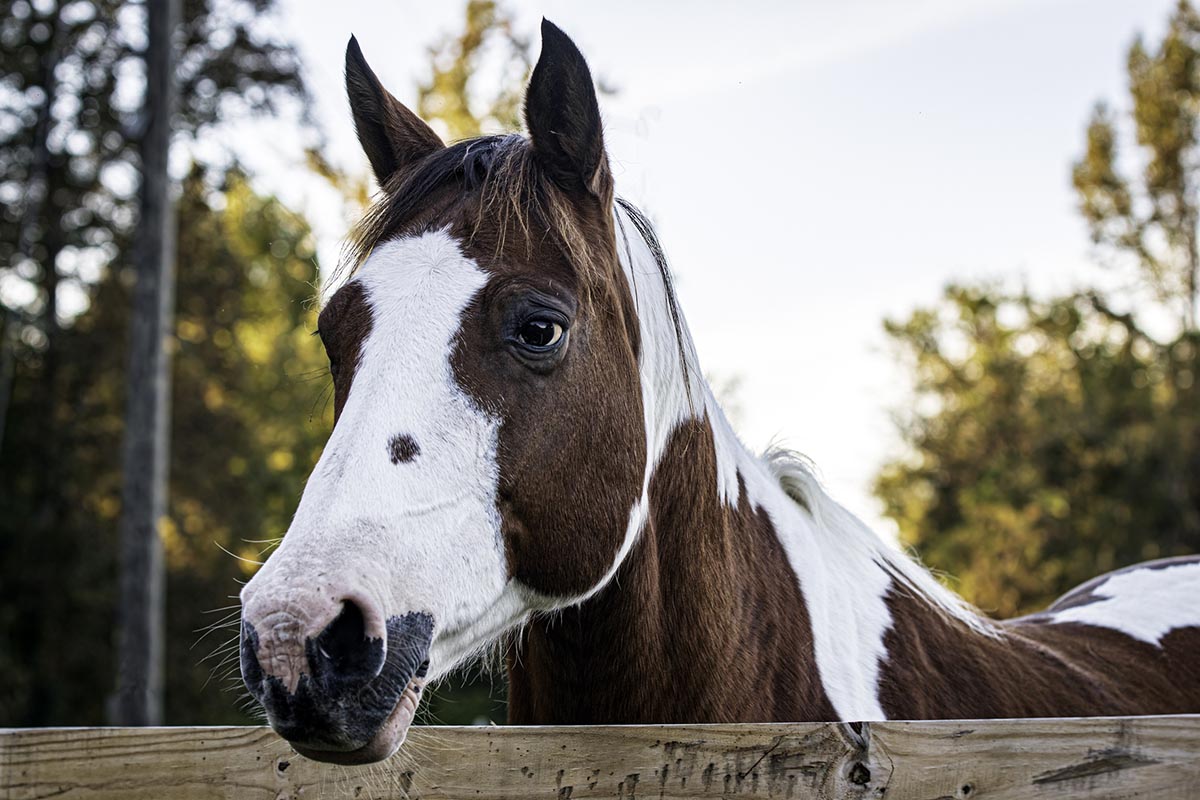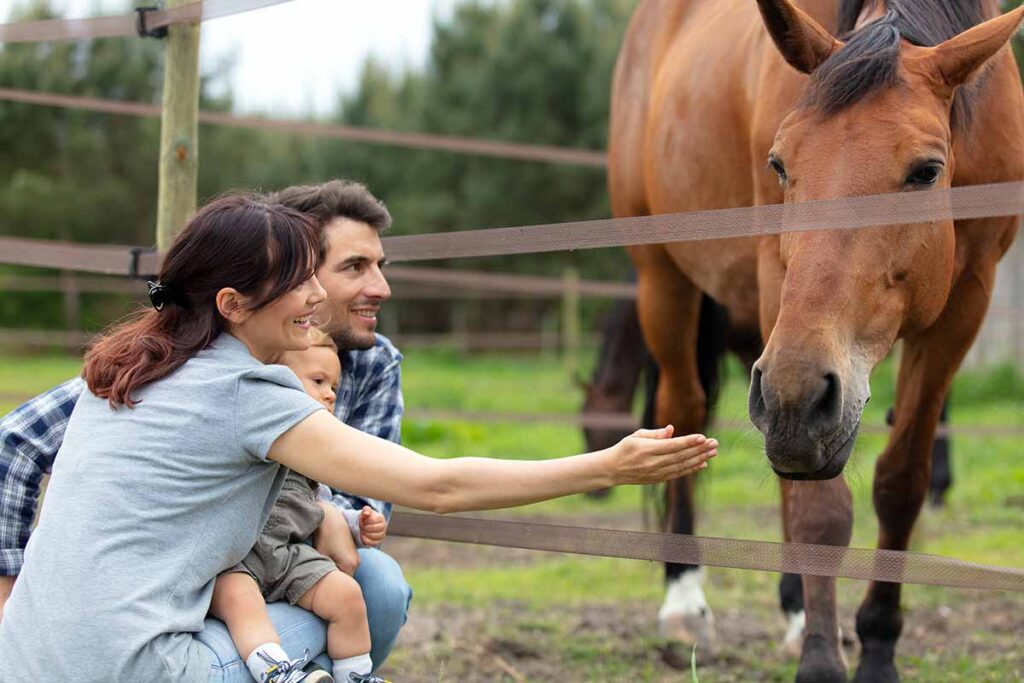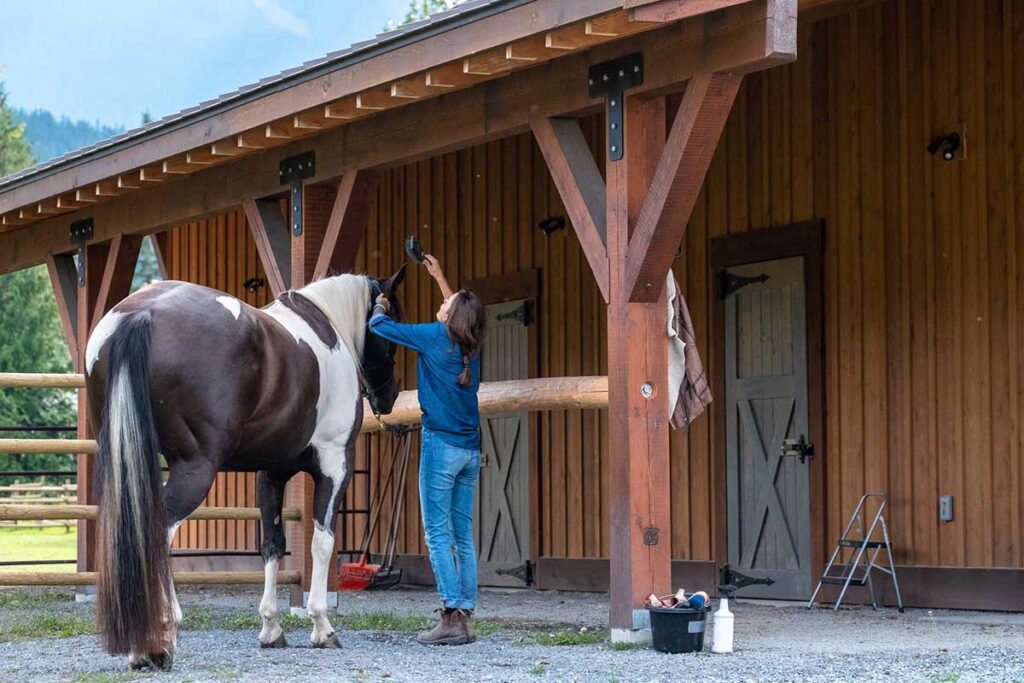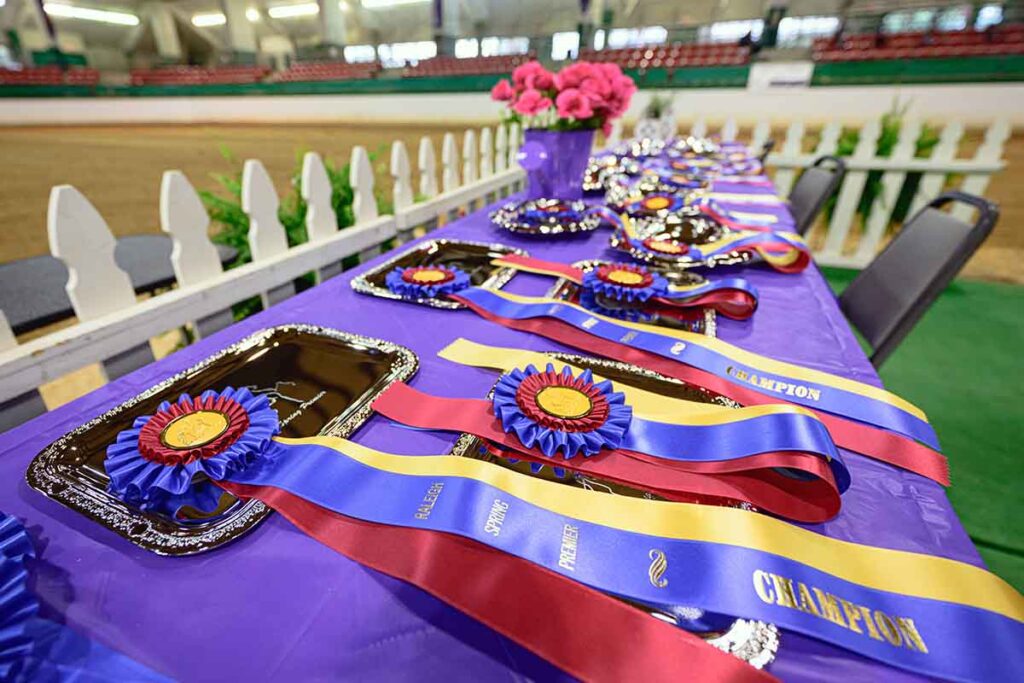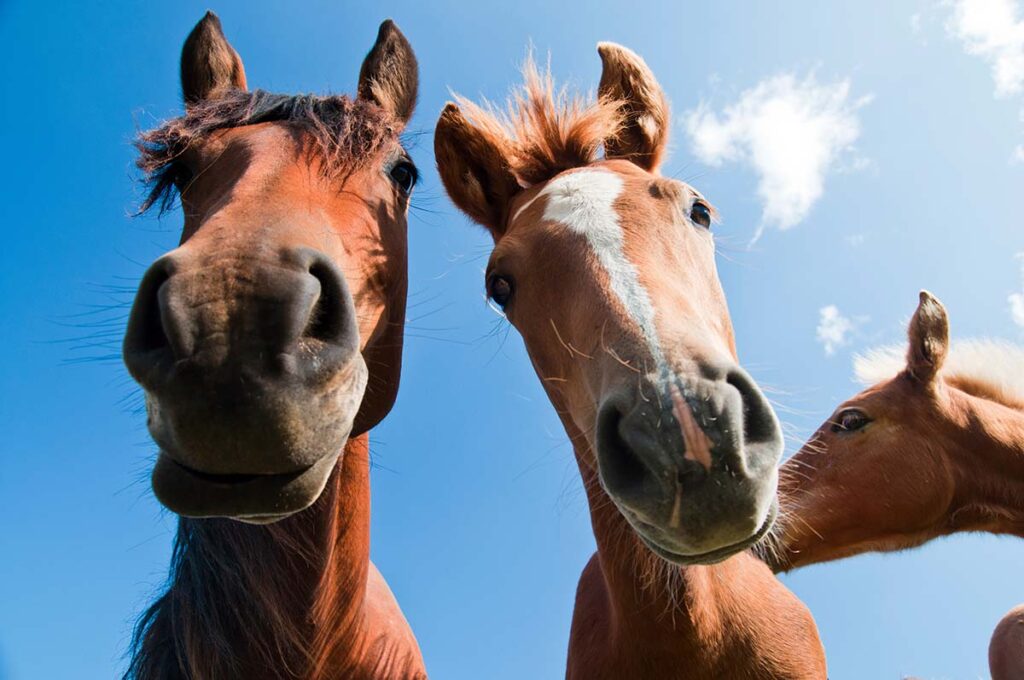Is your horse nearing or in his 20s and beyond? Then it might be time to reassess his diet to make sure he continues to thrive in his golden years. As horses age, they often have a harder time chewing and digesting their food and maintaining weight. For this reason, many require special feeding programs. In this article, we’ll describe the intricacies of feeding senior horses, so you can be sure you’re meeting their nutrient and forage needs.
Senior Horse Nutritional Needs
Older horses’ dietary requirements often differ from those of adult horses. Some battle metabolic issues, others have dental issues that prevent them from chewing and digesting food as effectively as they once did. Many struggle to maintain or gain weight.
That being said, if your senior horse is healthy and maintaining good body condition, you probably don’t need to make any major diet changes. Simply watch for weight loss, difficulty chewing feed, or an unthrifty appearance. With the first hint of these signs, consult your equine nutritionist or veterinarian and consider switching your horse to a senior feed.
What Are Senior Feeds?

In general, senior feeds are designed to meet the unique nutritional needs of horses over age 15 (though some younger horses can benefit from them too). They’re typically formulated for high fiber, easy digestion, and balanced nutrition. You’ll find two types of senior feeds on the market:
- A complete senior feed designed to meet all of a horse’s nutritional needs, without added hay or forage.
- A concentrated senior feed designed to be fed alongside forage.
When selecting a senior feed for your horse, consider this difference. If your horse can still chew hay well, opt for a concentrated senior product. If he struggles to consume his hay, a complete feed will better cater to his nutritional and forage requirements.
When to Switch Your Horse to a Senior Feed
Horses might require senior feed for various reasons, including:
- Dental issues, such as worn-down or missing teeth, which make it difficult for them to eat and digest feed and forage properly. Manufacturers process senior feeds to make them easy to chew, with complete senior feeds being suitable substitutes for a horse’s entire hay ration. To determine if your horse is having trouble chewing, watch for quidding (dropping clumps of partially chewed food).
- Weight loss despite having access to high-quality forage and grain. The weight loss might be preceded by decreased energy levels or a dull coat. Because many conditions can cause horses to struggle to maintain body condition, have your veterinarian rule out any underlying issues first.
- Obvious pieces (at least an inch long) of forage in your horse’s manure, which mean he’s probably not digesting his feed easily. The gastrointestinal system naturally becomes less efficient as horses age.
Other Feed Options and Considerations
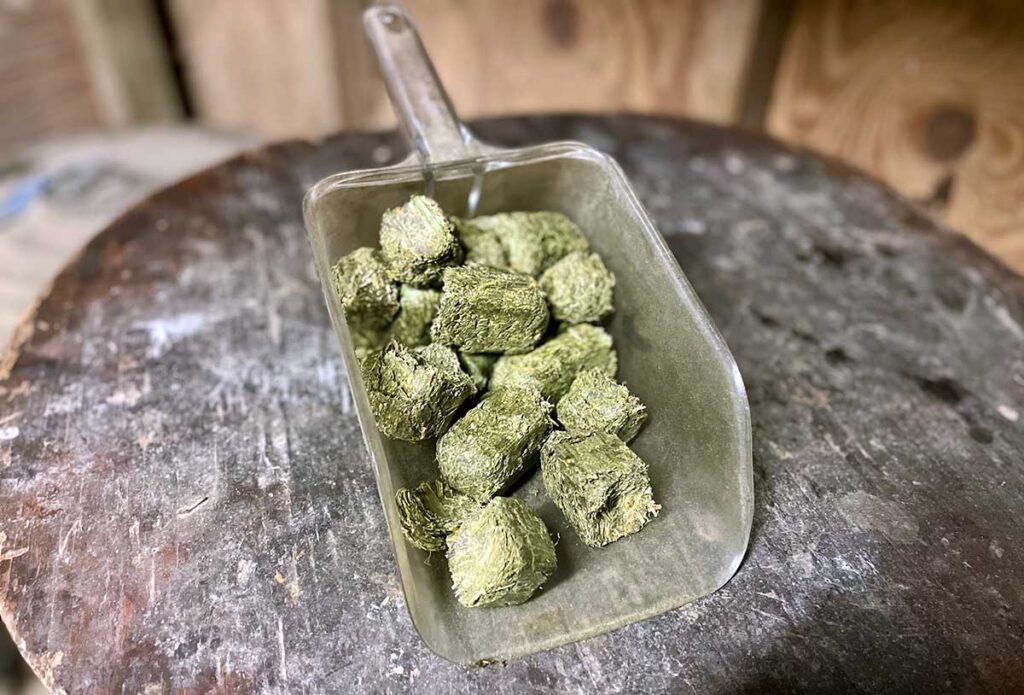
As a horse’s ability to chew declines, it’s important to provide him with easily digestible forage that is also high in fiber. Alternatives to traditional hay include soaked hay cubes, beet pulp, chopped hay, and pelleted hay extenders. For senior horses with severe dental problems, consider feeding an extruded feed for easy chewing. Soaking feeds can also help make them easier to chew.
Make sure your horse has plenty of fresh water. Check waterers and top off buckets throughout the day. Also stick to a regular feeding schedule, because senior horses can be particularly sensitive to changes.
If your horse has an endocrine disorder such as equine metabolic syndrome, pituitary pars intermedia dysfunction (aka Cushing’s disease), or insulin dysregulation, make sure his feed is labeled or marketed as having low nonstructural carbohydrate (NSC) levels. Check with the feed company to confirm whether a product is suitable for these horses. Or, consider feeding a low-NSC hay pellet with beet pulp, plus a ration balancer.
Take-Home Message
Feeding a senior horse requires an attentive and tailor-made approach. Your horse’s exact nutritional needs will depend on his activity level, overall health, and dental condition. Ask your veterinarian or equine nutritionist if it’s time to change to a senior feed or make dietary adjustments. He or she can assess your horse’s health and diet and help you come up with the best plan.
This article is brought to you by Sentinel Feed.

